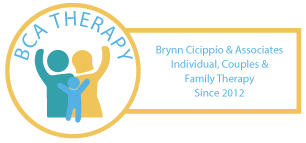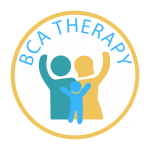Benefits of Recovery

The initial benefits of recovery include:
· No more hangovers.
· No more withdrawal rollercoaster.
· No more anxiety about where to find the next drink or dose.
· No more hiding alcohol or drug use.
· No more lying to friends, family, and co-workers about alcohol or drug use — if that was happening.
The benefits of recovery can also span the following domains:
1. Family
2. Social and civic functioning
3. Physical and mental health
4. Legal status and involvement
5. Employment and school
Recovery is the period of time that begins after an individual with an alcohol or substance use disorder takes proactive steps to restore and repair the harm caused by their time in active addiction. They may enter treatment for alcohol abuse, opioid addiction, or a problem with other illicit drugs. They may go to community support groups or begin recovery on their own: whatever the case, when they take that step, that’s when recovery begins.
That’s when things begin to change.
And as you’ll see, that’s when most things begin to change for the better.
If you want to learn more about the benefits of recovery, check out this article. This article, and the information cited above, were written by Christopher Johnston, MD, ABAM, the Chief Medical Officer for Pinnacle Treatment Centers, a leading drug and alcohol addiction treatment provider.
Learn More
Addicted Families
In addicted families, there are generally three rules:
Don’t Speak (about the addiction), Don’t Trust (anyone, even yourself), and Don’t Feel (don’t express feelings, don’t allow yourself to have them, and certainly don’t express any appropriate feelings)
Goals of treatment for addicted families include:
Talk about what’s going on
Learn to trust yourself
Know what you’re feeling and share it in a healthy and safe way

Trauma
Natural Disasters. Violence. Sexual Abuse. Domestic Violence. Rape. Neglect. Emotional Abuse. Death and Loss. Bullying. Accidents. School Violence. At times it is hard to escape the negativity and heaviness of all that we are exposed to and what some may experience.
Traumatic events or experiences are often jarring and unexpected. It can disrupt our world view, our security and safety in relationships, and make daily life challenging. Trauma can have lost lasting negative effects on emotional and psychological health and wellness.
Some people will say the event that experienced wasn’t “big enough” to be traumatic. Mistakenly, many people think of events like war to be the only times when the word trauma applies.
Psychology Today (Hyperlink this to https://www.psychologytoday.com/us/therapists/samantha-tomer-wayne-pa/708082 ) defines trauma as, “the experience of severe psychological distress following any terrible or life-threatening event.” A keyword here is terrible.
How do you define terrible?
Is your definition of terrible the same as your partners?
As your neighbor’s?
As your classmate’s?
Probably not. Each individual’s perception, reaction, or response may vary when they have experienced a traumatic event.
All responses are valid. No one gets to decide how you feel.
Therapy can support anyone who has experienced trauma, no matter how bigger or how small you think it may be. Therapy can help you:
Develop New Coping Skills
Limit Negative Thoughts
Sleep Better
Put Feelings Into Words
Gain Control Over Your Life
Decrease Anxiety
Limit Depression
Improve Relationships
The effects of trauma do not have to last a lifetime. We are here to help.
 Learn More
Learn MoreMaking the Most of Relationships
You know the phrase “Relationships Take Work” but what does that mean specifically for you and your partner?
Every relationship has its unique challenges. Maybe addiction or infidelity are a challenge for you. Maybe its direct and in the moment communication or managing finances. Maybe external factors get in the middle, like careers and in-laws and children.
Whatever it is, these challenges make it hard to invest in our relationships. They make it hard to move close to our partner, listen and support them, and be vulnerable and honest.
Ironically, investing in our relationships (and ourselves) is the exact remedy for these challenges.
Do you remember when you first met your partner? How exciting it was to receive an unexpected call or special surprise? How nice it was to hear they are thinking of you? How good it felt to return those sentiments?
During that time, would you also say you were being pretty good to yourself? It was important impress this person, to be deeply connected to them, so you made sure you put your best foot forward.
Why did that stop? When did it become too hard to invest in ourselves and in our relationships?
To help you get back on track, here are some ideas and tips to make the most of your relationship:
- Pick one thing that you can do every day that makes you feel good. Drink plenty of water, move your body for 30 minutes, listen to a motivating podcast, cook a healthy meal, read a funny novel. Do one thing every day that makes you feel good. It will not only relax you, but it will increase your ability to tolerate stress, execute patience, and give you a little feel-good dopamine release.
- Look for opportunities to turn toward your partner. Pay attention to all the times you may roll your eyes, sigh heavily, or mumble some not so nice words under your breath. Imagine every time you do this a little brick is placed on the wall that is building between you and your partner. Instead, use this as a chance to strengthen your relationship. When you want to sigh heavily, you may choose now to say “I’m not understanding your choice. Can you tell me more?” When you mumble under your breath, perhaps “It may not have been your intention, but that hurt my feelings” would work better. When you reach for the phone to text a friend to complain, I would imagine “I need your help right now” would go further.
- Find time to wow and woo. Remember those first several weeks or even months of dating, when everyone was out to impress and win over one another? You can still make that happen! Leave a note of appreciation, pack a lunch, make a random call during the work day to let your partner know you are thinking of them, laugh and have fun together. Here is a list of 50 ways to show you.
- Create deep and meaningful conversations. Some couples enjoy listening to podcasts and discussing their thoughts, others prefer to have conversation prompts (answering thought-provoking questions), and some prefer to watch moving films together and then analyzing. All of these activities enhance your relationship by creating a connection, spending time together, and challenging your way of thinking and communicating. Its impossible to know every single thought your partner has so why not take advantage of these new ways of relating.
If you are reading this list and saying to yourself, this is easier said than done OR my relationship is nowhere near ready for this OR I don’t even know if I want to make the most of my relationship, its ok. Every relationship is unique and moves and grows at various speeds. Use this list to help yourself set goals instead. Perhaps your goal is to invest in yourself over the next 90 days. Maybe its to talk with a professional to see if you can build enough trust in your relationship to turn towards your partner. If you are not in a place to take action, start by creating a vision for your relationship.
Learn MoreA Life of Gratitude
Have an attitude of gratitude. Be grateful every day. The struggle ends when gratitude begins. How do we form a life of gratitude?
What exactly is gratitude and why do you need it?
Synonyms for gratitude include appreciation, thankfulness, acknowledgment, and recognition. It can be an expression or an emotion. It is something we can feel and something we can convey. It doesn’t cost a thing and can have unlimited dividends.
Gratitude can occur in a brief moment or can be a daily approach to life. It can come naturally and you can also train yourself to experience gratefulness at any time, regardless of what is happening around you.
Since the 1990’s many positive psychologists have studied the influence and importance of gratitude. There is no doubt that gratitude is important.
Here’s why:
Gratitude creates a focus on abundance, not lack of. By being aware of what is present and available in your life, you are less likely to approach the world and your relationships, from a place of desperation and anxiety and frustration.
Believe it or not, but gratitude can boost your immune system, improve sleep, and lower blood pressure.
I think you can agree that it feels good to be grateful. Its not going to harm you, or anyone else, in any way.
Because gratitude feels good, when we are rooted in gratitude we increase our experiences of positive emotions such as joy, happiness, optimism, and pleasure. Who doesn’t want more of that?
What opportunities do you have, every day, to keep yourself rooted in gratitude?
Learn More
